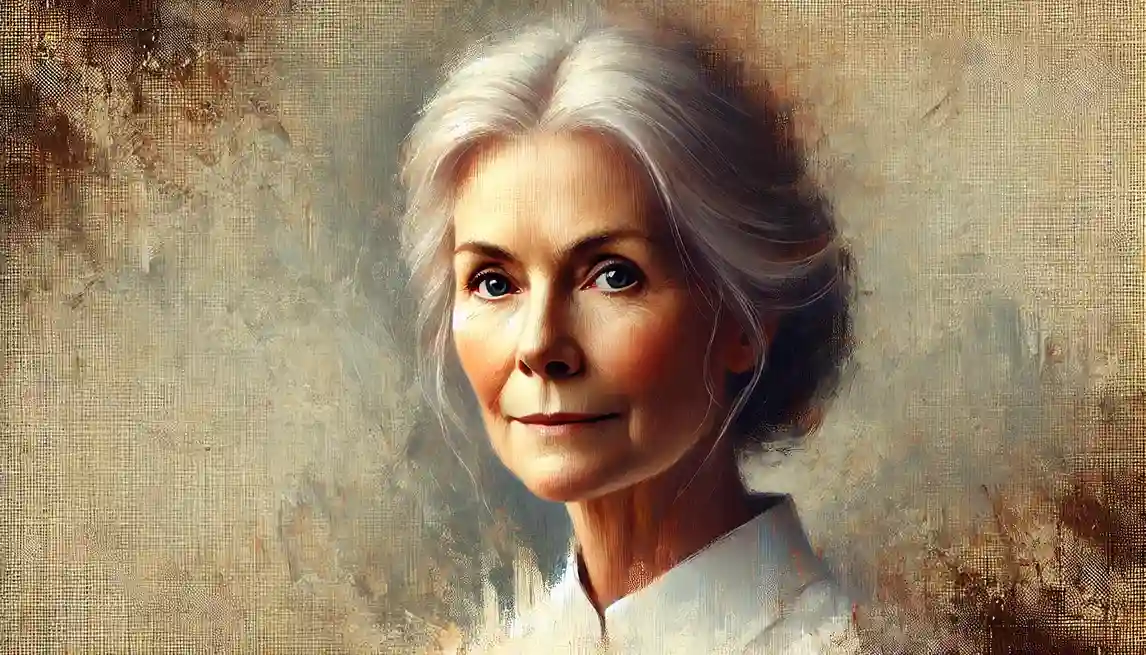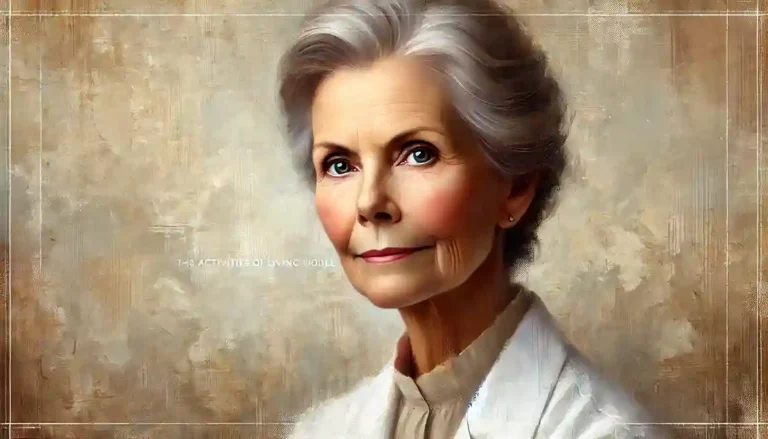Jean Watson, a prominent nurse theorist, educator, and author, is widely known for her development of the Theory of Human Caring, a framework that places compassion and empathy at the center of nursing practice.
By advocating for caring as the essence of nursing, Watson revolutionized how nurses approach patient care, emphasizing holistic and humanistic healing.
Her work continues to influence global nursing education, research, and practice.
In this article, we cover Jean Watson’s life, achievements, philosophy, and lasting impact on modern nursing.

Quick Summary
- Developed the Theory of Human Caring, which prioritizes the humanistic aspects of care.
- Introduced the concept of “caring moments,” emphasizing nurse-patient connections.
- Authored numerous influential works on caring science and humanistic nursing.
- Advocated for holistic healing that addresses the mind, body, and spirit.
- Recognized globally for her contributions to nursing theory, research, and education.
Early Life and Background of Jean Watson

Birth and Family Background of Jean Watson
- Jean Watson was born on June 10, 1940, in Welch, West Virginia, in a close-knit family that valued community and compassion.
- Growing up in a small rural town influenced her understanding of human relationships and the importance of caring.
Education and Early Influences in Watson’s Life
- Watson pursued her initial nursing education at the Lewis-Gale School of Nursing and later earned her bachelor’s degree from the University of Colorado.
- She continued her studies, obtaining a master’s degree in psychiatric and mental health nursing and a Ph.D. in educational psychology and counseling.
- Her interest in the psychological and emotional aspects of healing shaped her holistic approach to nursing.
Jean Watson’s Philosophy and Vision for Nursing
- Watson’s philosophy is rooted in the idea that caring is the essence of nursing and that true healing involves addressing the whole person—mind, body, and spirit.
- She emphasized the importance of nurse-patient relationships, which she called “caring moments,” where authentic human connections foster healing.
- Famous quote: “Caring is the essence of nursing, and it is through caring that nurses can create a healing environment.”
Jean Watson’s Education and Early Nursing Career
Formal Education and Nursing Training of Jean Watson
- Watson completed her nursing diploma and pursued further education in psychiatric and mental health nursing, reflecting her interest in the emotional dimensions of care.
- She earned her Ph.D. from the University of Colorado, where her research focused on humanistic care and the psychological aspects of healing.
Early Professional Experiences in Watson’s Career
- Watson began her career as a clinical nurse, working in various settings, including psychiatric care and community health.
- Her experiences highlighted the importance of compassionate care, leading her to develop her theory of human caring.
Key Achievements and Contributions of Jean Watson
Development of the Theory of Human Caring
- Watson’s Theory of Human Caring emphasizes the importance of caring for patients in a holistic manner, addressing not just physical health but also emotional, social, and spiritual needs.
- The theory is based on ten Carative Factors that guide nurses in delivering compassionate care. Some key factors include:
- Practicing loving-kindness and equanimity.
- Instilling faith and hope in patients.
- Creating a healing environment.
- Watson introduced the concept of “caring moments,” which occur when a nurse and patient form a meaningful connection that enhances the healing process.
Contributions to Nursing Education and Curriculum Development
- Watson integrated her theory into nursing curricula, teaching future nurses the importance of empathy and compassionate care.
- She founded the Watson Caring Science Institute, a non-profit organization dedicated to advancing caring science and research.
Research and Theoretical Advancements
- Watson conducted extensive research on the role of caring in patient outcomes and overall well-being.
- Her studies demonstrated that caring interventions improve patient satisfaction, recovery rates, and quality of life.
Global Impact and Recognition
- Watson’s theory has been adopted internationally, influencing nursing practice and research across diverse healthcare settings.
- She has received numerous awards, including honorary doctorates and lifetime achievement honors, for her contributions to nursing theory and humanistic care.
Overview of Jean Watson’s Theory of Human Caring
- The theory focuses on creating meaningful nurse-patient relationships through authentic connections and holistic care.
- By integrating caring moments and carative factors, nurses can foster healing environments that address patients’ physical, emotional, and spiritual needs.
- To explore this theory in greater depth, visit the in-depth article on the Theory of Human Caring.
Notable Publications by Jean Watson
- Nursing: The Philosophy and Science of Caring – A foundational work detailing her theory and its practical applications.
- Caring Science as Sacred Science – A book exploring the spiritual dimensions of caring and its impact on healing.
- Numerous journal articles on humanistic nursing, caring science, and holistic care.
Challenges and Criticisms of Jean Watson’s Work
Challenges in Implementing the Theory of Human Caring
- Some nurses and healthcare administrators have found it challenging to integrate the theory into fast-paced or high-pressure environments.
- Watson advocated for systemic changes to prioritize holistic care and create environments conducive to compassionate nursing.
Criticisms of the Theory’s Subjectivity
- Critics have argued that the emphasis on subjective experiences and emotional connections may be difficult to measure or standardize.
- However, proponents highlight that patient satisfaction and well-being are critical outcomes that justify the theory’s application.
Timeline of Major Milestones in Jean Watson’s Life
- 1940: Born in Welch, West Virginia.
- 1961: Earned her nursing diploma.
- 1973: Completed her Ph.D. in educational psychology and counseling.
- 1979: Published Nursing: The Philosophy and Science of Caring.
- 2008: Founded the Watson Caring Science Institute.
- 2010s: Continued to conduct research and promote caring science worldwide.
Legacy and Lasting Impact of Jean Watson
Impact on Nursing Practice and Patient Care
- Watson’s theory has improved patient outcomes by fostering compassionate nurse-patient interactions and holistic healing.
Global Influence and Recognitions
- The theory is taught in nursing schools worldwide and applied in various healthcare settings.
- Watson’s work has earned her numerous accolades, including lifetime achievement awards and global recognition as a leader in humanistic nursing.
Final Years and Ongoing Contributions
- Watson continues to mentor nursing students and collaborate with researchers to advance caring science.
- Her ongoing work focuses on integrating spiritual and emotional dimensions into mainstream healthcare practices.
Key Lessons from Jean Watson for Modern Nursing
- Holistic care: Addressing patients’ physical, emotional, and spiritual needs leads to better outcomes.
- Caring relationships: Forming meaningful connections with patients enhances the healing process.
- Humanistic focus: Prioritizing empathy and compassion should be central to nursing practice.
- Healing environments: Creating supportive spaces promotes recovery and well-being.
- Continuous education: Watson’s emphasis on lifelong learning highlights the importance of staying updated on holistic care practices.
Conclusion
Jean Watson’s Theory of Human Caring has redefined nursing by emphasizing the central role of compassion, empathy, and holistic healing.
Her work, explored further in the in-depth article on the Theory of Human Caring, continues to shape nursing education and practice globally.
Watson’s legacy endures through her commitment to advancing humanistic nursing, ensuring that care remains at the heart of healthcare.



